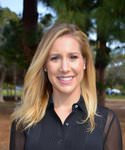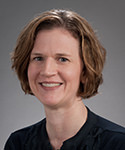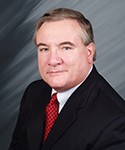American Board of Endodontics: Profiles and Perspective on Board Certification
American Board of Endodontics Profile: Sheena Howell
Addressing the “I Need More Experience” Excuse

Board certification is not only a personal accomplishment, but a way of showing respect and gratitude to your profession, endodontic training program and the faculty members who mentored you along the way. For these reasons, I pursued Board certification as soon as I graduated from my program.
I found that completing the Board certification process immediately following graduation was the best decision for me, and I would recommend it to any new graduate. When you graduate from your training program, you will likely have gaps in your work schedule. Most new graduates are seeing fewer patients per day than established practitioners, and may only be working part time. For the first three months following graduation, I was only working three days per week, so I was able to fill in the additional time by studying for the oral examination and preparing my portfolio of cases. It has only been a year and a half since I completed my training at UCSF, and my work/life schedule has changed dramatically. I now work five days a week, attend study clubs several times a month, market the practice I work in to aid in practice growth, not to mention an increase in family and personal demands. Trying to devote time and energy to prepare for these examinations when you are managing your own practice, balancing a full work week, and making time for family and social life is very challenging. I recommend taking the time to complete the Board certification process when you have the most time, which is likely immediately following graduation from your training program.
Another reason I recommend completing the Board certification process as soon as possible is because the outcome studies, guidelines, position statements, etc. are fresh in your mind, and you are in the habit of studying. I understand that it is easy to want to take a break from studying and reward yourself for completing your intensive training program. Still, the greatest reward is achieving the highest level of accomplishment within your specialty. I spent approximately two months preparing for the oral examination and close to 100 hours editing my case portfolio to the best of my ability. Although it was a challenge in the moment, I know it would be much more difficult to accomplish years later.
A challenge some new graduates may face is obtaining the appropriate cases and follow-ups needed to complete their portfolio. I was fortunate to be in a three-year endodontic training program, which provided an advantage in having a greater case selection than many two-year programs, and I had an additional year to see patients for the necessary one-year recall. One recommendation is to keep a log of treatments that you are satisfied with while you are in your residency program. Document the type of case (non-surgical RCT/ReTx/surgery) and date completed, along with patient contact information. This way you can easily look back and choose your favorite cases, and focus on getting those patients in for recall examinations. Once you graduate, your co-residents will likely be more than happy to see the patient for follow-up and send you the radiographs so you can assess the case outcome, and determine if it is a case you want to use for your portfolio. Once you find the cases that fulfill the requirements for the portfolio, your write-ups are one aspect of this process that you have complete control over. Spend time making sure the details of the case are clearly documented, and have a few colleagues review the cases as well. You will likely overlook typos and discrepancies in the write-ups; a fresh set of eyes will help correct these mistakes and prevent making a mistake that could result in failure to pass this portion of the examination.
Everyone who completes an endodontic residency is more than qualified to become Board-certified. You have accomplished so much throughout your residency, and have begun to develop tremendous skill and knowledge in the specialty of endodontics. Achieving Board certification is well within your reach and will provide so much pride and sense of achievement throughout your endodontic career. I am so proud to be Board-certified; as a Diplomate of the American Board of Endodontics, I can demonstrate excellence and expertise in the specialty of endodontics.
Sheena M. Howell received her D.M.D. degree in 2010 from Nova Southeastern University, and furthered her education and training through a General Practice Residency at the Veterans Hospital in La Jolla, California. Following completion of the two-year residency, Dr. Howell was accepted into the University of California at San Francisco, where she completed a three-year endodontic residency. Dr. Howell currently practices at Ocean Microendodontics in San Diego.
American Board of Endodontics Profile: Natasha Flake
Addressing the “I’m Too Busy” Excuse
 More often than not we’ve all wondered how the most successful, busiest people get it all done. They certainly have the same 24 hours in a day that we have, right?
More often than not we’ve all wondered how the most successful, busiest people get it all done. They certainly have the same 24 hours in a day that we have, right?
Throughout my years in residency, I’ll admit to wondering when I’d find time to finish requirements, complete research, search for jobs, manage to get some personal time, and grab some shut-eye, let alone consider Board certification. After residency, it was a new job, new house, new family, teaching, research, committee work, private practice and more. Yet Board certification is one of the most important and rewarding decisions I’ve made in my career.
Why Board certification? There are many reasons I chose to become Board-certified. First and foremost, Board certification is a distinguishing mark of the highest standards of skill and knowledge. It recognizes a commitment to excellence. Additionally, I am convinced certification increases recognition and confidence of the specialty of endodontics. And, there’s my word. I gave my word to my program director at the University of Washington who stressed the importance of Board certification, and its value and esteem.
My path to Board certification was a six-year journey, one I traveled throughout my 30s. The timing of my written exam ran in tandem with the last month of my residency in 2007. I was already in super study mode, so prep for the written exam was a natural extension of my current academic work load. A few years (and two children) later, I submitted my case portfolio. Fast forward to 2013 and there I was taking my oral exam.
Receiving my Board certification ranks up there with my top personal and professional accomplishments. But certification was not a “one and done” reach for excellence. What started out as an endpoint, became a call to continually challenge myself, even after the pinning ceremony. The process inspired me to stay current, think about the science of endodontics, and translate this knowledge into clinical practice. It helped me realize that professional advancement and education is inherent in my nature. Since achieving Board certification, my continued involvement in the AAE keeps me stretching (and busy) along with my students and my family!
My advice? Everyone’s time is valuable. And the more valuable something becomes, the scarcer it seems. To paraphrase the words of Lemony Snicket, “If you wait until you’re ready, you’ll be waiting for the rest of your life.” Board certification is an achievement definitely worth finding the time to pursue.
Natasha M. Flake, D.D.S., Ph.D., M.S.D., is an associate professor and the director of predoctoral endodontics at the University of Washington School of Dentistry. Dr. Flake is a District VI Director on the AAE Board of Directors and works regularly in private practice. She is married and the mother of three children, ages 8, 6 and 2.
American Board of Endodontics Profile: Tom Borgia
Addressing the “It’s Too Late” Excuse
 “It’s just too late.” I wish that I could count the number of times that I uttered these words when my colleagues asked me why I hadn’t pursed Board certification, but I don’t think numbers go that high! Of course, it was an excuse just like some of the other ones I had repeatedly used: “I’m too busy”, “Why should I bother at my age”, “It’s not really necessary”, “The process isn’t fair”, along with a host of less valid reasons. I had been in private endodontic practice for 30 years before entering dental education, and not being a Diplomate never seemed to affect me as far as income or respect from my endodontic colleagues was concerned. But there was something missing – that personal sense of pride in great accomplishment that we all want to be known for, even if I kept telling myself it wasn’t worth the effort.
“It’s just too late.” I wish that I could count the number of times that I uttered these words when my colleagues asked me why I hadn’t pursed Board certification, but I don’t think numbers go that high! Of course, it was an excuse just like some of the other ones I had repeatedly used: “I’m too busy”, “Why should I bother at my age”, “It’s not really necessary”, “The process isn’t fair”, along with a host of less valid reasons. I had been in private endodontic practice for 30 years before entering dental education, and not being a Diplomate never seemed to affect me as far as income or respect from my endodontic colleagues was concerned. But there was something missing – that personal sense of pride in great accomplishment that we all want to be known for, even if I kept telling myself it wasn’t worth the effort.
I always felt that I had practiced at the very highest levels of patient care all of my years as an endodontist (or at least strived to do so), but the validation of that claim always seemed to elude me. I was always ready to rationalize not becoming “boarded” by reminding myself and telling those who asked me that only a very small number of endodontists were Board-certified, like only 15-20 percent. And after all, it wasn’t necessary to have to practice as a specialist, unlike the stringent requirements of Board certification for our medical colleagues when they apply for hospital privileges. But in my heart of hearts, I knew that I felt “something less” than my colleagues who were Board-certified, and that was a reality I couldn’t rationalize away. I would never admit it to anyone other than myself, but I wanted to be recognized as one who had achieved that distinctive recognition, not from my patients, but from all of my colleagues throughout dentistry. It was a point of pride that truly escaped me and I knew that I was the only one who could change that situation.
One of the stipulations I agreed to when accepting a university appointment was that I would pursue Board certification and become certified within five years of my becoming the chairman of an endodontic department. At the time, five years seemed like a long way off and I convinced myself that I’d be retired before that time arrived. I didn’t really even feel any pressure to follow through with my promise. But then, I encountered some outstanding, enthusiastic and dedicated endodontic residents who literally changed my attitude and who were truly the inspiration for my finally deciding that I could not be a role model to them without having achieved Board certification. While they were organizing their studying for the written part of the process, they helped me study for my oral exam. (I had passed the written exam way back in 1983!) As they were putting some of their clinical cases together for possible submission, they helped me select my cases, staying with me late into the night to assure that everything was perfect with my portfolio. At times when I felt I might be tempted to give up, they would respond with “Come on Doc, you can do it!” My biggest challenge wasn’t the fear of failing, but of letting down the very individuals I was pushing to become Board-certified as soon as they could to achieve the very thing that I had not. Admittedly, now serving as the dean of a dental school at a major university, I was also “a bit” concerned what would be said about me if I didn’t become a Diplomate!
So the process is behind me now and I can and am enjoying the satisfaction and the pride in myself I had been missing for so much of my career. It goes without saying that becoming a “Diplomate, American Board of Endodontics” wasn’t easy by any stretch of the imagination. But going through that process reinvigorated my interest in my profession 33 years after I had completed my endodontic program. This undoubtedly gave me a new appreciation of what our specialty is really all about! While I may not be the oldest individual to become Board-certified, my long career afforded me the ability to submit a case with a 27-year follow-up, and I’d bet that’s a record, or at least very close to one! Taking the time to evaluate what I had accomplished in treating my patients over the years was an amazing diorama I would never have otherwise seen, with the added benefit of being able to coordinate my treatment rationale with all the science I had learned and then reviewed. It was a wonderful justification of not only what I had learned through years of accumulated clinical experience, but also of accumulated didactic knowledge that reinforced to me the absolute necessity of practicing evidence- based endodontics.
Board certification is really about challenging yourself – you have to go one-on-one with your knowledge, abilities and experience, but you come out the winner in ways that can only be described as providing a uniquely satisfying personal and professional gratification that each of us as individuals will appreciate and understand differently. To quote Aristotle, “The roots of education are bitter, but the fruit is sweet.” I’ll bet if he were still around and I asked him to comment on the Board certification process, he’d say pretty much the same thing about that too.
Dr. Anthony (Tom) Borgia is a graduate of Georgetown University School of Dentistry, receiving his D.D.S. in 1976. He followed Georgetown by completing a two-year internship in general dentistry at the USAF Medical Center Wright-Patterson, Wright-Patterson AFB, Ohio, and then entered the post-doctoral program in endodontics at the University of Connecticut School of Dental Medicine. He maintained a private practice in Plymouth, Massachusetts, until becoming chairman of the department of endodontics at the West Virginia University School of Dentistry in 2010. In 2015, Dr. Borgia was named dean of the School of Dentistry.
More information about Board certification is available at: www.aae.org/board.




